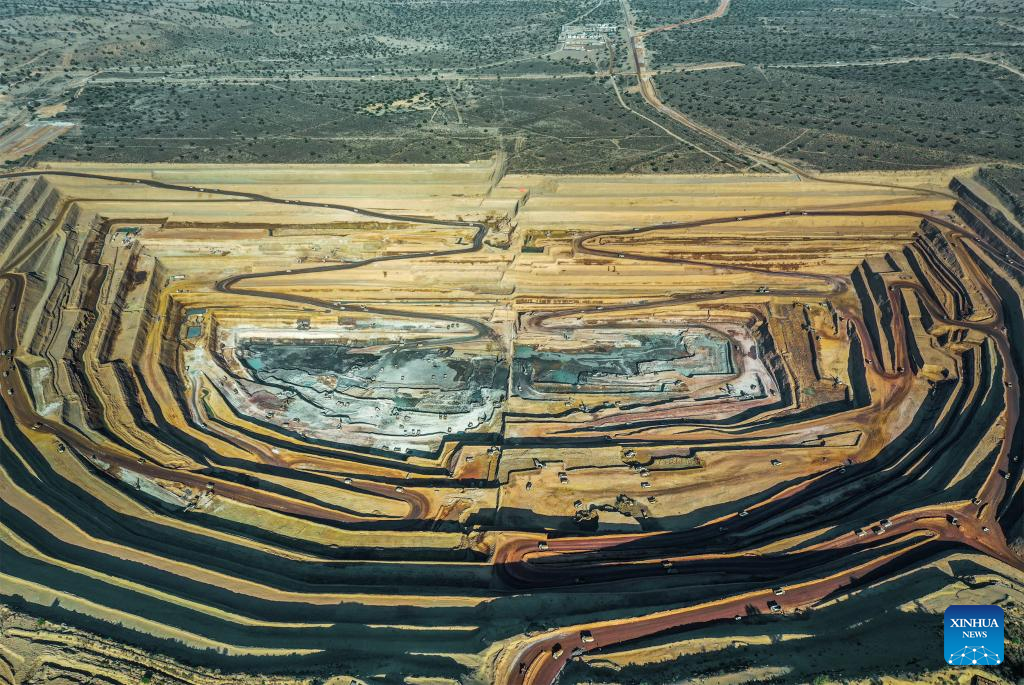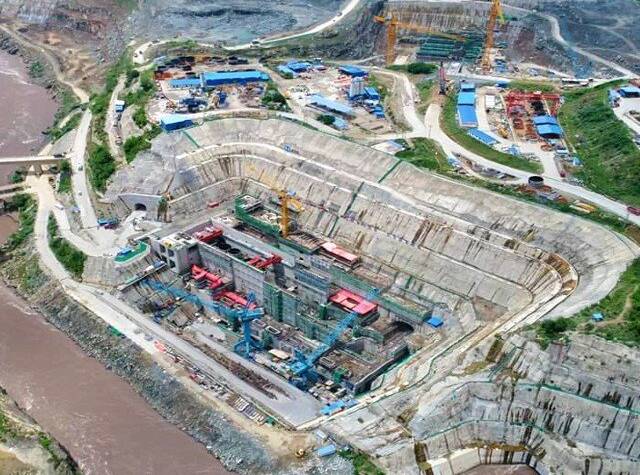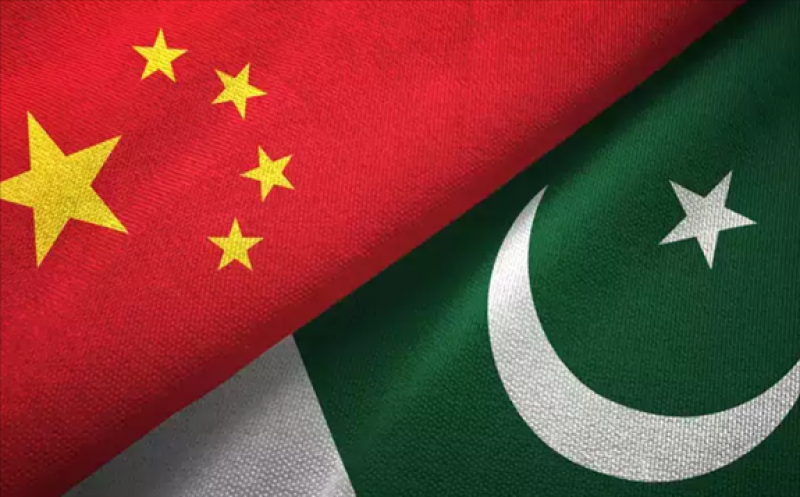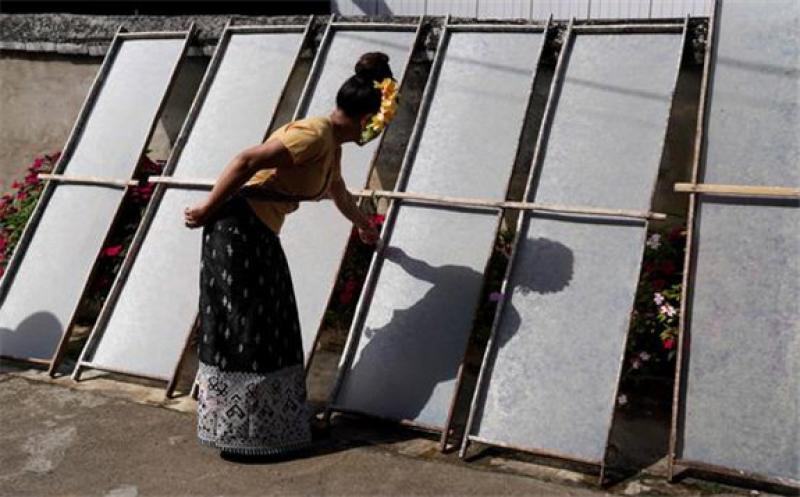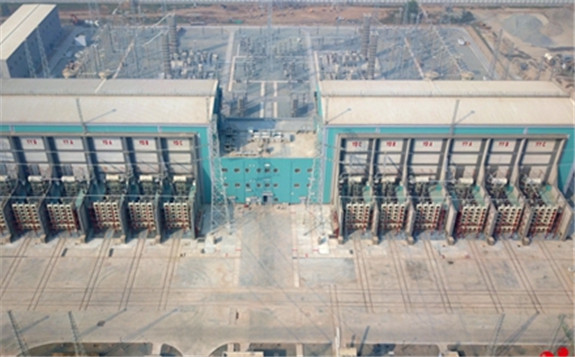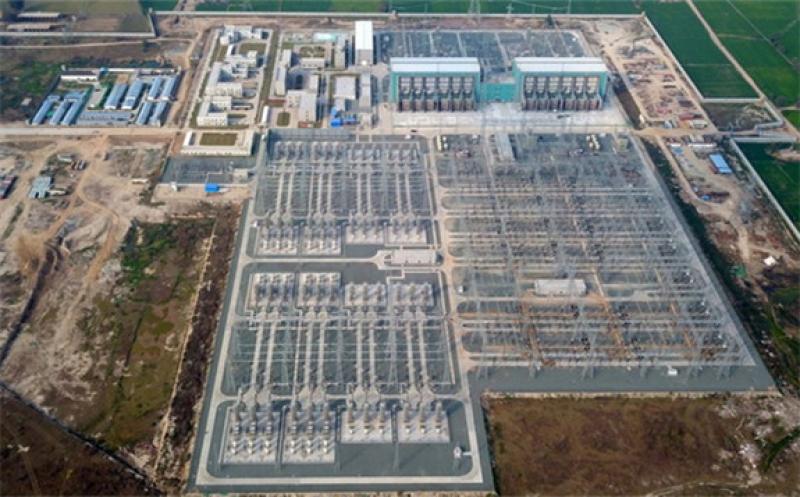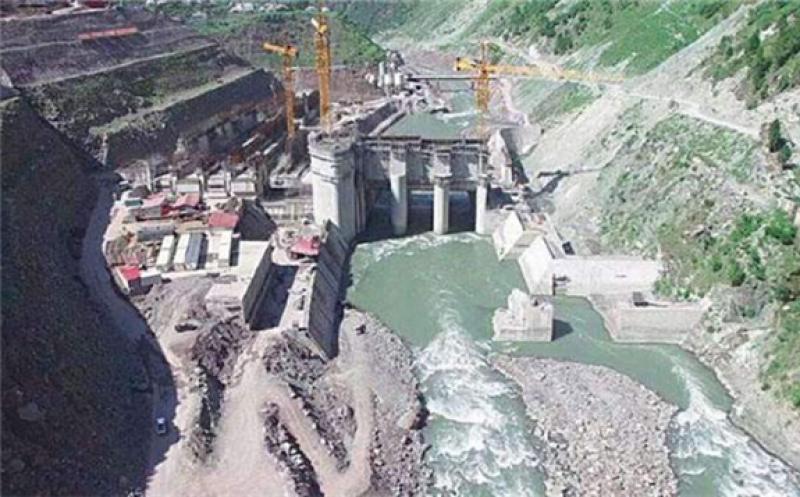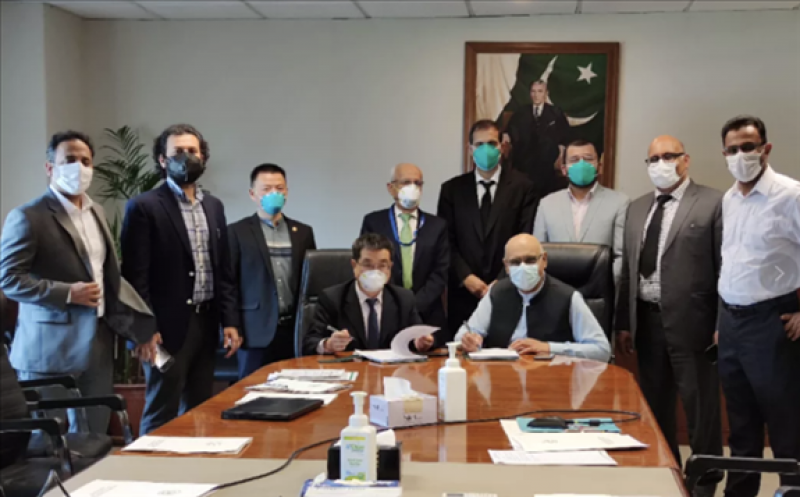China and Pakistan are all-weather partners of strategic cooperation.
In 2013, the strategic cooperative partnership between the People's Republic of China and the Islamic Republic of Pakistan was further enhanced, and bilateral exchanges and cooperation in various fields deepened.
The two countries maintained frequent high-level exchange of visits and deepened political mutual trust. The two prime ministers exchanged visits within a short span of time. In May, Premier Li Keqiang visited Pakistan. He held talks with President Asif Ali Zardari and caretaker Prime Minister Hazar Khan Khoso, and met with Prime Minister-elect Mian Muhammad Nawaz Sharif. The two sides issued the Joint Statement on Deepening Comprehensive Strategic Cooperation Between the People's Republic of China and the Islamic Republic of Pakistan. In July, Prime Minister Sharif visited China. He met with President Xi Jinping, held talks with Premier Li Keqiang, and met with NPC Chairman Zhang Dejiang. The two sides issued the Common Vision for Deepening China-Pakistan Strategic Cooperative Partnership in the New Era. In the same month, Foreign Minister Wang Yi met with Sartaj Aziz, Adviser to the Prime Minister on National Security and Foreign Affairs of Pakistan, on the margins of the ARF meetings in Brunei Darussalam. In September, Foreign Minister Wang Yi met with Prime Minister Sharif during the UN General Assembly in New York. In November, Foreign Minister Wang Yi met with Sartaj Aziz, Adviser to the Prime Minister on National Security and Foreign Affairs of Pakistan, on the sidelines of ASEM Foreign Ministers' Meeting in New Delhi.
Pragmatic cooperation between the two countries saw major breakthroughs, and cooperation was deepened in energy, finance, infrastructure and other key areas. During Premier Li Keqiang's visit to Pakistan, the two sides signed the Memorandum of Understanding on Cooperation for the Long-term Plan on China-Pakistan Economic Corridor Between the Government of the People's Republic of China and the Government of the Islamic Republic of Pakistan. In July, during Prime Minister Sharif's visit to China, the two sides signed the Memorandum of Understanding on the Cooperation of Developing "China-Pakistan Economic Corridor" Long-term Plan and Action Between National Development and Reform Commission of the People's Republic of China and Ministry of Planning and Development of the Islamic Republic of Pakistan. The economic corridor is mainly about cooperation in three areas, namely, transport, energy and industrial parks. It builds a new platform for the growth of China-Pakistan strategic cooperative partnership in the next five to ten years. In August, Zhang Xiaoqiang, Vice Minister of the National Development and Reform Commission (NDRC), led a Chinese delegation to the inaugural meeting of the Joint Cooperation Committee on the Long-term Plan for the China-Pakistan Economic Corridor in Islamabad, which marked a new phase of steady implementation and solid progress of the China-Pakistan Economic Corridor.
2. Sino-Pakistan Economic and Trade Relations
Pakistan is the first South Asian country to sign a free trade agreement and currency swap agreement with China, and it is the largest destination of Chinese investment in South Asia. China is Pakistan's second largest trading partner and fourth largest export market.
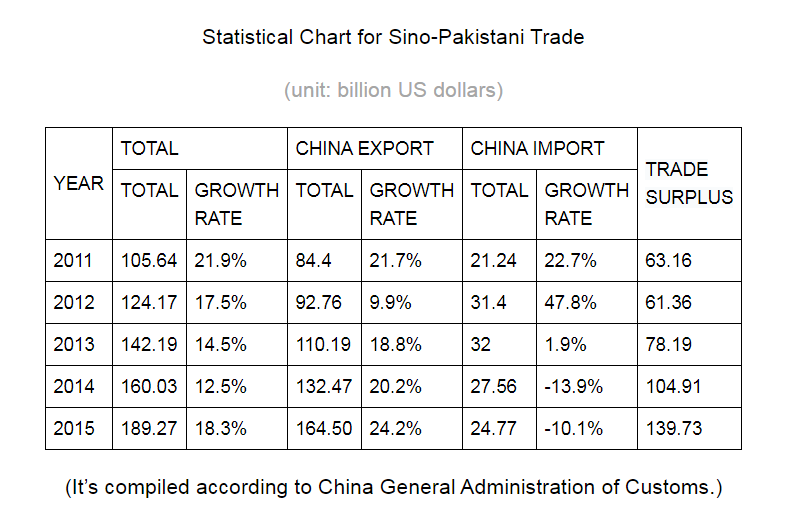
1. Sino-Pakistan Relations
China and Pakistan are all-weather partners of strategic cooperation.
In 2013, the strategic cooperative partnership between the People's Republic of China and the Islamic Republic of Pakistan was further enhanced, and bilateral exchanges and cooperation in various fields deepened.
The two countries maintained frequent high-level exchange of visits and deepened political mutual trust. The two prime ministers exchanged visits within a short span of time. In May, Premier Li Keqiang visited Pakistan. He held talks with President Asif Ali Zardari and caretaker Prime Minister Hazar Khan Khoso, and met with Prime Minister-elect Mian Muhammad Nawaz Sharif. The two sides issued the Joint Statement on Deepening Comprehensive Strategic Cooperation Between the People's Republic of China and the Islamic Republic of Pakistan. In July, Prime Minister Sharif visited China. He met with President Xi Jinping, held talks with Premier Li Keqiang, and met with NPC Chairman Zhang Dejiang. The two sides issued the Common Vision for Deepening China-Pakistan Strategic Cooperative Partnership in the New Era. In the same month, Foreign Minister Wang Yi met with Sartaj Aziz, Adviser to the Prime Minister on National Security and Foreign Affairs of Pakistan, on the margins of the ARF meetings in Brunei Darussalam. In September, Foreign Minister Wang Yi met with Prime Minister Sharif during the UN General Assembly in New York. In November, Foreign Minister Wang Yi met with Sartaj Aziz, Adviser to the Prime Minister on National Security and Foreign Affairs of Pakistan, on the sidelines of ASEM Foreign Ministers' Meeting in New Delhi.
Pragmatic cooperation between the two countries saw major breakthroughs, and cooperation was deepened in energy, finance, infrastructure and other key areas. During Premier Li Keqiang's visit to Pakistan, the two sides signed the Memorandum of Understanding on Cooperation for the Long-term Plan on China-Pakistan Economic Corridor Between the Government of the People's Republic of China and the Government of the Islamic Republic of Pakistan. In July, during Prime Minister Sharif's visit to China, the two sides signed the Memorandum of Understanding on the Cooperation of Developing "China-Pakistan Economic Corridor" Long-term Plan and Action Between National Development and Reform Commission of the People's Republic of China and Ministry of Planning and Development of the Islamic Republic of Pakistan. The economic corridor is mainly about cooperation in three areas, namely, transport, energy and industrial parks. It builds a new platform for the growth of China-Pakistan strategic cooperative partnership in the next five to ten years. In August, Zhang Xiaoqiang, Vice Minister of the National Development and Reform Commission (NDRC), led a Chinese delegation to the inaugural meeting of the Joint Cooperation Committee on the Long-term Plan for the China-Pakistan Economic Corridor in Islamabad, which marked a new phase of steady implementation and solid progress of the China-Pakistan Economic Corridor.
2. Sino-Pakistan Economic and Trade Relations
Pakistan is the first South Asian country to sign a free trade agreement and currency swap agreement with China, and it is the largest destination of Chinese investment in South Asia. China is Pakistan's second largest trading partner and fourth largest export market.
